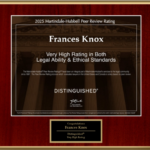If a police officer pulls you over for suspecting that you were driving while under the influence and asks to administer a field sobriety test, know you have rights before agreeing to anything.
Your choices will impact your charges and case, so knowing your rights ahead of time can help you make the best decision.
What Are Field Sobriety Tests?
Officers administer field sobriety tests (FSTs) to evaluate a driver’s mental and physical abilities and assess whether the motorist is intoxicated. These tests also can later serve as evidence in the case against you.
Most people know the breathalyzer test, which detects your blood alcohol content (BAC); however, this is different from an FST.
While on the scene, officers typically request one or all three of these National Highway Traffic Safety Administration (NHTSA) sobriety tests to assess your state:
- horizontal gaze nystagmus (HGN)
- walk and turn, and
- one-leg stand.
If an officer deems you failed one or all of these assessments; generally, it means the driver shows signs of having a BAC of .1% or more (which is illegal in every North Carolina), it gives them probable cause for a DUI arrest.
An officer may also ask you to:
- recite the alphabet
- count numbers backward
- count while tapping the thumb to each finger in succession, or
- perform the Rhomberg balance test.
However, these are not considered reliable assessments for intoxication, and a judge is less likely to accept these results as proof you were intoxicated.
Am I Required To Take A Sobriety Test?
If you’ve been pulled over, you are not required to take a field sobriety test. However, if you have been arrested for driving under the influence, generally, you must take a blood, breath, or urine test if the police request it.
However, if you refuse a sobriety test, the police officer may testify in court that you refused to participate, and the judge or jury may think you’re hiding something.
Refusing the field sobriety test does not trigger an automatic license suspension; however, if you are arrested and then deny the precise breath test, this will result in an automatic one-year license suspension.
What Should I Do If I’ve Been Charged With A DUI?
If you’ve been charged with a DUI, contact the Knox Law Center right away. We have vast experience advocating for clients and navigating North Carolina’s DUI laws. In addition, we provide complimentary consultations to our clients, so you can better understand your case’s chances.






